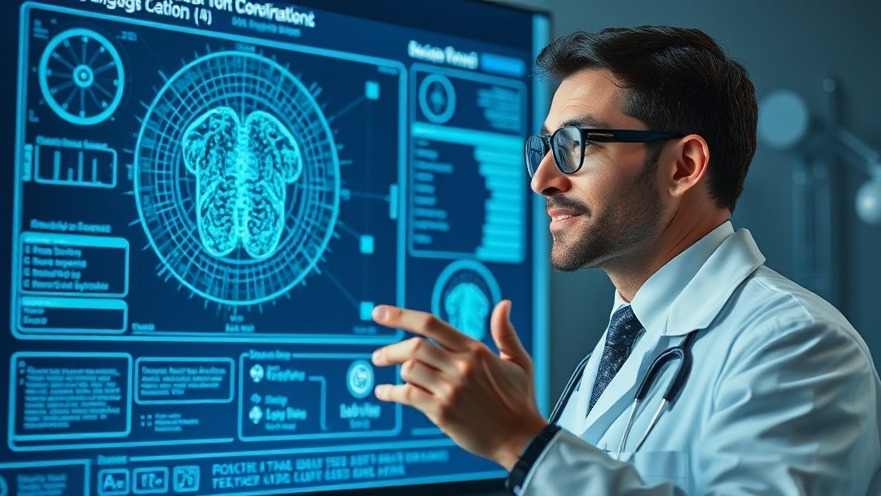
Microsoft's MAI-DxO: A Game Changer for Diagnostic Accuracy
In a striking revelation, Microsoft has declared that its artificial intelligence tool, the Microsoft AI Diagnostic Orchestrator (MAI-DxO), has achieved unprecedented diagnostic accuracy, surpassing that of seasoned physicians. This advancement comes as a timely reminder of technology's potential to revolutionize healthcare—especially as U.S. health spending approaches a staggering 20% of GDP.
A Closer Look at Diagnostic Performance
MAI-DxO demonstrated an impressive 85.5% diagnostic accuracy in complex cases, measured against a group of 21 experienced physicians whose average performance hovered around 20%. This performance was evaluated using real case records from the New England Journal of Medicine, thereby establishing a solid benchmark for comparison. Such disparities raise questions about the current capabilities of human clinicians in handling intricate diagnostic challenges.
The Mechanism Behind MAI-DxO
What sets MAI-DxO apart is its integration of multiple large language models, enabling it to simulate a collaborative group of physicians brainstorming solutions to reach diagnoses efficiently. Instead of the typical multiple-choice testing benchmarks, Microsoft's approach emulates the sequential thought process of clinicians, where diagnostic accuracy is balanced against a virtual cost for each decision made. This nuanced evaluation mirrors the real-world complexities faced by clinicians.
The Financial Implications for Concierge Practices
For concierge medical practices, understanding the financial implications of advanced AI tools like MAI-DxO is crucial. As the healthcare landscape continues to evolve, practices must adapt to innovative technologies that can enhance diagnostic capabilities while potentially lowering costs. By investing in AI solutions, concierge practices can differentiate themselves, improve patient outcomes, and optimize resource allocation, ultimately fostering a more sustainable business model.
AI as a Support Tool, Not a Replacement
It's important to note that Microsoft emphasizes MAI-DxO's role as a complement to—not a replacement for—human clinicians. This perspective aligns with broader sentiments in the medical community that view AI as a means to augment clinical decision-making. The aim is to empower physicians with advanced tools that enhance their diagnostic capabilities, freeing them to focus on patient care while ensuring accuracy in increasingly complex medical scenarios.
The Future of AI in Healthcare
The implications of MAI-DxO extend beyond immediate diagnostic improvements. As generative AI tools continue to evolve and demonstrate stronger performance, they are poised to play a significant role in everyday clinical decision-making, particularly in settings where complex diagnostics are necessary. For concierge practice owners, this signals a potential shift in how care might be delivered—one that combines human intuition and expertise with AI-driven insights.
Taking Action in Your Practice
As the healthcare landscape unmistakably shifts towards AI integration, it’s essential for concierge practices to stay ahead of the curve. Consider investing in emerging technologies that enhance diagnostic accuracy and reduce costs. Engaging with AI tools can position your practice as a leader in patient care while ensuring that you are meeting the financial imperatives of the industry.
How Can You Experience the Benefits?
Investing in AI technologies not only enhances diagnostic outcomes but also amplifies your practice's reputation as a forward-thinking entity aimed at providing top-tier healthcare. Consider exploring collaborative integrations of AI like MAI-DxO within your operational framework. Such decisions can significantly impact your practice’s standing and financial stability.
The rise of AI in healthcare presents both challenges and opportunities for practice owners. By embracing these advancements, you position your practice for unprecedented growth and relevance in an evolving healthcare market.
 Add Row
Add Row  Add
Add 




Write A Comment